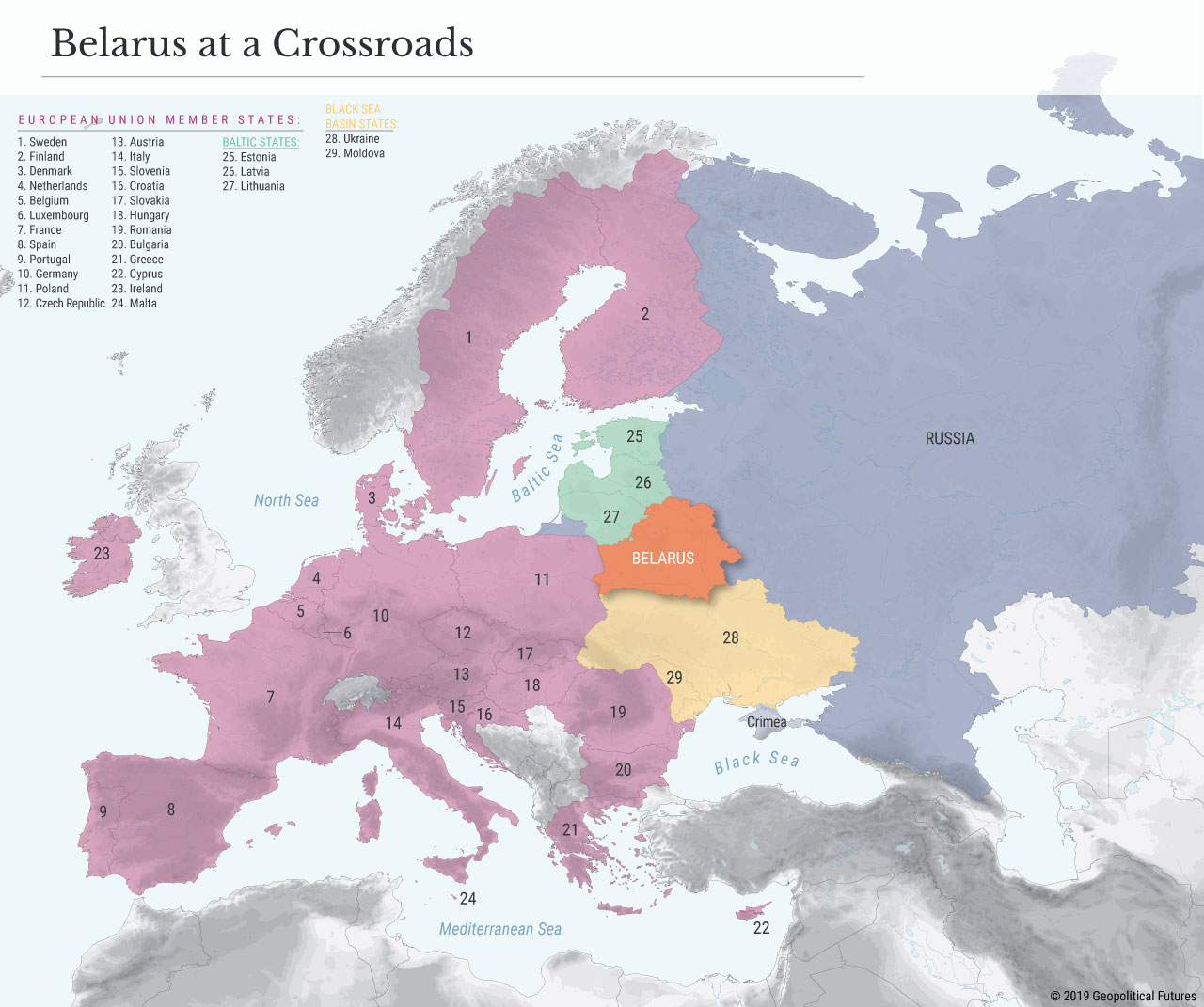Public demonstrations against Belarusian President Alexander Lukashenko have intensified. Looked at casually, it seems unlikely that his presidency can survive. If the protesters are as dedicated as they appear, then Lukashenko has run out of maneuvering room. The only solution to an intense and long-term resistance is an armed force that will shoot into the crowd. Since the protests have gone on for weeks and that hasn’t happened, the demonstrators’ calculation is that it won’t happen.
Lukashenko’s only option to remain in power, therefore, is to change the game. His meeting with Russian President Vladimir Putin in Sochi on Monday was an attempt to do just that and, along the way, allow Putin to change his game as well.
Lukashenko has been skilled in preserving Belarusian sovereignty and, by doing so, preserving his own power. At this point, sovereignty is a luxury he may no longer be able to afford. Given the limits of Belarusian forces to suppress the demonstrations, Lukashenko’s last chance to survive is to trade sovereignty for real but diminished power by entrusting someone else to put down the unrest. And the most obvious potential partner is Putin.
Putin has, as we have written about extensively, a central interest in integrating Belarus into the Russian sphere. Belarus is not only a defensive asset for Russia, providing a buffer and strategic depth against Western intrusions, but also an offensive threat, when in Russian hands and housing Russian forces, to Poland, the Baltics and, in the longer term, Slovakia. Putin does not intend to launch a war westward. The odds of his losing such a war are too high to risk, and the result of a loss would be unpredictable. For Putin, merely having the option of war gives him political standing in Russia and a lever that could force European countries to change their policies to accommodate Russian needs. Belarus would give Russia options, and strategic options are fewer in practice than they might appear in theory.
Putin has been maneuvering to dominate Belarus for a long time, but Lukashenko has blocked him. Putin had little to offer Lukashenko, and outright military occupation, although something the Russians could succeed in doing, would resurrect NATO as an effective fighting force and cause Germany to back off from stronger ties to Russia. The latter two things took priority over Belarus, so Russia nibbled but couldn’t act.
The Belarusian election and the public’s response give Putin the option to act. Rather than a hostile intrusion, he would be coming at the request of the legally elected president of Belarus, to stabilize a country of vital interest to Russia, in a time in which Western agitators are creating a crisis for Belarus. Putin would not have to use force; the mere presence of Russian forces would signal to the Belarusian demonstrators that the risks of protesting suddenly increased. The Sochi talks helped establish steps in this direction: Lukashenko suggested that Belarus’ future military drills, no matter the size or scope, should include Russia, while Putin announced that Moscow would be giving Belarus a $1.5 billion state loan.
Though it’s unclear whether the poisoning of Russian opposition leader Alexei Navalny was meant as a signal to Belarus of what might come – and indeed, that seems too neat an explanation – certainly a move on Belarus would be a signal to Putin’s own opponents in Russia.
It’s also unclear how strong the demonstrators are. We don’t know whether they could or would resort to armed resistance, or if neighbors like Poland might help them. Measuring the distribution of power between demonstrators and governments is one of the hardest parts of geopolitics, because it is not geopolitical. Many years ago, I underestimated the demonstrations in Iran, and failed to see that a large faction of the Iranian army was standing beside the demonstrations. But I also thought the crowds in Venezuela would bring down Nicolas Maduro. Measuring the passion of a crowd and the discipline of the police and military is not easily done. And the tendency of politicians and pundits to guess wrong is substantial.
This is something that Lukashenko and Putin must calculate. Attacking a mass of people willing to face their bullets would be devastating to both – for Lukashenko because he would lose complete control of this people, and for Putin because he would lose Europe’s support, which he badly needs.
Still, crowds often defeat powers that are already collapsing, like the shah. So Lukashenko, with much at stake, will offer Putin a lot. Putin, with much to gain, will be eager for the benefit, but will be the more cautious of the two. He will want to take control of Belarus without appearing to have violated its sovereignty. How that works was likely after-dinner conversation.






